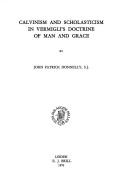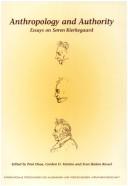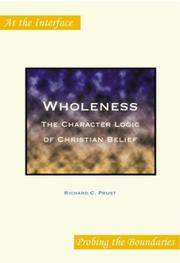| Listing 1 - 10 of 230 | << page >> |
Sort by
|
Book
ISBN: 900437793X 9004388516 9789004377936 Year: 2018 Publisher: Boston BRILL
Abstract | Keywords | Export | Availability | Bookmark
 Loading...
Loading...Choose an application
- Reference Manager
- EndNote
- RefWorks (Direct export to RefWorks)

ISBN: 1282415956 9786612415951 0300154879 9780300154870 9780300168099 0300168098 9780300149890 0300149891 9781282415959 Year: 2009 Publisher: New Haven
Abstract | Keywords | Export | Availability | Bookmark
 Loading...
Loading...Choose an application
- Reference Manager
- EndNote
- RefWorks (Direct export to RefWorks)
What is sin? Is it simply wrongdoing? Why do its effects linger over time? In this sensitive, imaginative, and original work, Gary Anderson shows how changing conceptions of sin and forgiveness lay at the very heart of the biblical tradition. Spanning nearly two thousand years, the book brilliantly demonstrates how sin, once conceived of as a physical burden, becomes, over time, eclipsed by economic metaphors. Transformed from a weight that an individual carried, sin becomes a debt that must be repaid in order to be redeemed in God's eyes.Anderson shows how this ancient Jewish revolution in thought shaped the way the Christian church understood the death and resurrection of Jesus and eventually led to the development of various penitential disciplines, deeds of charity, and even papal indulgences. In so doing it reveals how these changing notions of sin provided a spur for the Protestant Reformation.Broad in scope while still exceptionally attentive to detail, this ambitious and profound book unveils one of the most seismic shifts that occurred in religious belief and practice, deepening our understanding of one of the most fundamental aspects of human experience.
Book
ISBN: 0813229014 9780813229010 9780813229003 0813229006 Year: 2016 Publisher: Washington, D.C.
Abstract | Keywords | Export | Availability | Bookmark
 Loading...
Loading...Choose an application
- Reference Manager
- EndNote
- RefWorks (Direct export to RefWorks)
Book
ISBN: 9789004608177 9789004578609 Year: 1905 Publisher: Leiden ;Boston Brill
Abstract | Keywords | Export | Availability | Bookmark
 Loading...
Loading...Choose an application
- Reference Manager
- EndNote
- RefWorks (Direct export to RefWorks)
Book
ISBN: 9781009026185 9781316515648 9781009012584 Year: 2021 Publisher: Cambridge Cambridge University Press
Abstract | Keywords | Export | Availability | Bookmark
 Loading...
Loading...Choose an application
- Reference Manager
- EndNote
- RefWorks (Direct export to RefWorks)
"In a time of climate change, environmental degradation, and social injustice, the question of the value and purpose of human life has become urgent. What are the grounds for hope in a wounded world? This Sacred Life gives a deep philosophical and religious articulation of humanity's identity and vocation by rooting people in a symbiotic, meshwork world that is saturated with sacred gifts. The benefits of Artificial Intelligence and genetic enhancement notwithstanding, Norman Wirzba shows how an account of humans as interdependent and vulnerable creatures orients people to be a creative, healing presence in a world punctuated by wounds. He argues that the commodification of places and creatures needs to be resisted so that all life can be cherished and celebrated. Humanity's fundamental vocation is to bear witness to God's love for creaturely life, and to commit to the construction of a hospitable and beautiful world"--
Life --- Creation. --- Theological anthropology --- Religious aspects --- Christianity.

ISBN: 1283260263 9786613260260 1599471809 9781599471808 1932031960 9781932031966 Year: 2006 Publisher: Philadelphia Templeton Foundation Press
Abstract | Keywords | Export | Availability | Bookmark
 Loading...
Loading...Choose an application
- Reference Manager
- EndNote
- RefWorks (Direct export to RefWorks)
College and university professors have been demanding that this book, out of print for several years, be made available again, as it is unique in its field. This new edition, which includes a new preface and guidance to current literature, offers a balanced study of the implications of scientific developments in psychology and neuroscience for traditional Christian beliefs.Malcolm Jeeves, former editor-in-chief of Neuropsychologia, a leading international scientific journal in behavioral and cognitive neuroscience, explores the intersection of science and faith in definin
Christianity --- Psychology, Religious. --- Theological anthropology --- Psychology. --- Christianity.

ISBN: 9789004477780 9789004044821 Year: 1976 Publisher: Leiden;Boston BRILL
Abstract | Keywords | Export | Availability | Bookmark
 Loading...
Loading...Choose an application
- Reference Manager
- EndNote
- RefWorks (Direct export to RefWorks)
Theological anthropology --- Christianity --- History of doctrines

ISBN: 9789004456167 9789042006409 Year: 2000 Publisher: Leiden;Boston BRILL
Abstract | Keywords | Export | Availability | Bookmark
 Loading...
Loading...Choose an application
- Reference Manager
- EndNote
- RefWorks (Direct export to RefWorks)
This volume on anthropology and authority in the writings of Søren Kierkegaard (1813-1855) offers its reader nineteen timely discussions of two fundamental categories pertaining to the literary, philosophical, and theological production of this prominent 19th century Danish thinker, whose vast influence upon 20th century intellectual life continues to grow as the new millennium approaches. The volume's nineteen contributors - from Canada, Denmark, Great Britain, Holland, Hungary, Italy, and the United States - inquire into such complex problematics in Kierkegaard's oeuvre as the interrelationship between the human, the divine, and the spiritual; between the secular and the Christian; between human and Christian love; between state and church institutions and the single individual of faith; and between this individual's concern for quality in civic and religious life and the quantitative forces of modern society's masses and crowds. Special attention is given to the indisputable authority of God, Christ, and the apostles as opposed to the debatable authority, or non-authority, of the author. Of particular interest is the nexus between Kierkegaard's existential and religious concerns, on the one hand, and his intricate textual conceptions, multifarious poetic strategies, and various means of pseudonymous and indirect communication, on the other. Between the covers of Anthropology and Authority some chapters seek to refine received knowledge of Kierkegaard in such disciplines as theology and moral philosophy. Conversely, other chapters submit rather postmodern critiques of the author's stylistic and rhetorical devices. A summary assessment of the nineteen contributions would fail to recognize this considerable methodological and theoretical diversity. Instead, the reader's access to the smorgasbord of insights has been facilitated by an introduction in which one of the American editors briefly outline the individual contributions on a general historical and intellectual background. Altogether, the probing insights of Anthropology and Authority go to the core of Søren Kierkegaard's authorship. Individual chapters either update previous responses to the many challenges presented by this work, or the chapters face new challenges and/or present critical challenges on their own.
Philosophical anthropology --- Philosophy, Modern --- Theological anthropology --- Christianity
Book
ISBN: 1438453337 9781438453330 9781438453316 1438453310 Year: 2014 Publisher: Albany
Abstract | Keywords | Export | Availability | Bookmark
 Loading...
Loading...Choose an application
- Reference Manager
- EndNote
- RefWorks (Direct export to RefWorks)
The second volume in a trilogy advancing a systematic philosophical theology, this book explores the realities of human existence articulated by religion.
Theological anthropology. --- Philosophy and religion. --- Ontology.

ISBN: 9789004495227 9789042010888 Year: 2004 Publisher: Leiden;Boston BRILL
Abstract | Keywords | Export | Availability | Bookmark
 Loading...
Loading...Choose an application
- Reference Manager
- EndNote
- RefWorks (Direct export to RefWorks)
The notion of a "person" is in deep philosophical trouble. And this has posed a deepening crisis for believers: Christian beliefs are, after all, irreducibly about persons. In response to this situation, Prust proposes a new way to reason about persons, one based on identifying persons as characters of action. Employing a phenomenology of action he calls "character logic," he develops a powerful new tool for thinking through some of the intractable dilemmas that have long befuddled belief: • Can we avoid being arbitrary and parochial in claiming that God is the only source of moral value? • Can we reconcile natural evil in the world with God's absolute power? • Can we continue to honor the historicity of faith-based claims in the face of critical history? • Can our personal life be eternal when neither timeless nor everlasting life is conceivable? • Can we accept our personal mortality and still affirm our destiny as eternal? Wholeness: The Character Logic of Christian Belief argues that character logic shows us a reasonable way to think about persons, one that puts theology on a new footing and gives affirmative answers to all these questions!.
Human acts --- Personalism --- Theological anthropology --- Christianity
| Listing 1 - 10 of 230 | << page >> |
Sort by
|

 Search
Search Feedback
Feedback About UniCat
About UniCat  Help
Help News
News